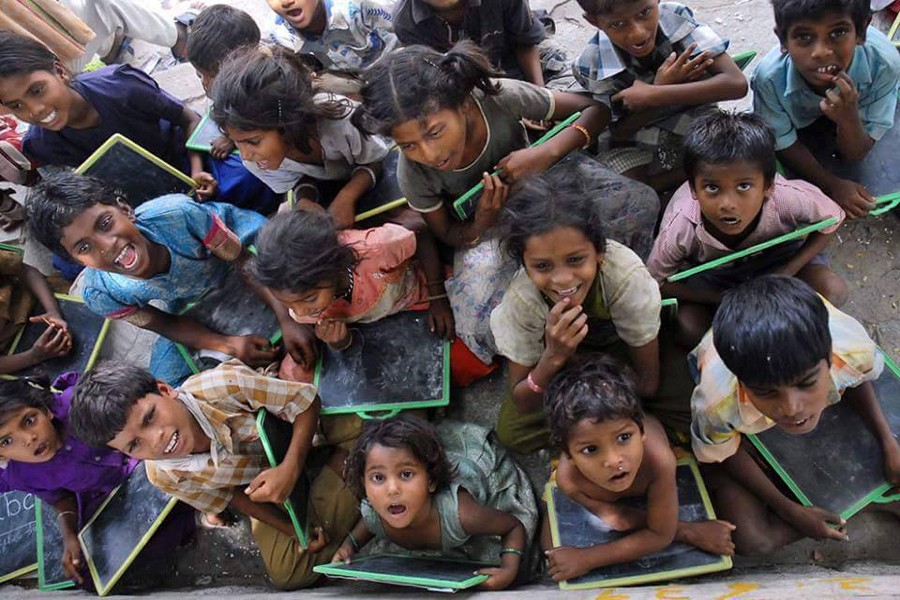Fourteen-year-old Muhammad smiles when he talks about what he has learned today. He attends one of UNICEF's learning centres in the squalid and overcrowded refugee camps in Bangladesh that have received Rohingya refugees fleeing rape, torched villages and killings in Myanmar.
Now he is safe, and goes to a learning centre on top of a small hill for two hours every weekday to learn as much as possible including math, his mother-tongue Burmese and English. English is his favourite subject. "Learning English is the best," he says and explains that this is the reason why he is rather content with life in the camp. Now he has the chance to learn new things - something that was not possible for him back in Myanmar.
His joy of learning and eagerness to learn as much as possible is something that is palpable among children in all the camps. One sees many smiles when a new poem has been learned by heart and when the children proudly show that they can now count up to ten in English.
Muhammed is one of more than 350,000 Rohingya children and adolescents who have found safety in Bangladesh. UNICEF plans to scale up the number of learning centres from 378 to 1,400 in order to reach 200,000 children over the next year. The learning centres provide early education to children aged 4 to 6 years, as well as what could be described as a very basic education to children aged 6 to 14 years. Three shifts operate in each learning centre daily in order to accommodate as many children as possible. They are being taught by a Burmese teacher and a teacher from the Bangladeshi host community.
The learning centre cannot provide children with formal schooling of many hours per day but it is a first step in responding to a severe and acute humanitarian crisis. It is a safe haven for two hours every day where children can also make new friends and can find psycho-social support, if needed.
In the short term, the learning centres provide a sense of normality in a very extraordinary and precarious situation. In the long term, it is also an investment - both in the children themselves - and in the future of this region. One can only imagine what can become of these children over the course of time if they can enjoy full access to quality education and formal schooling.
The Rohingya children, like all other children in South Asia, should have the opportunity to grow. As they are potential resources for tomorrow, their need for education must be met today.
Many of these children have already suffered tremendous losses. We should not allow this emergency to rob them of their future. Instead, we need to instill in them a sense of hope and education is the only way to transform their lives and shape their future well.
The writer is Regional Director, Unicef Regional Office for South Asia.


